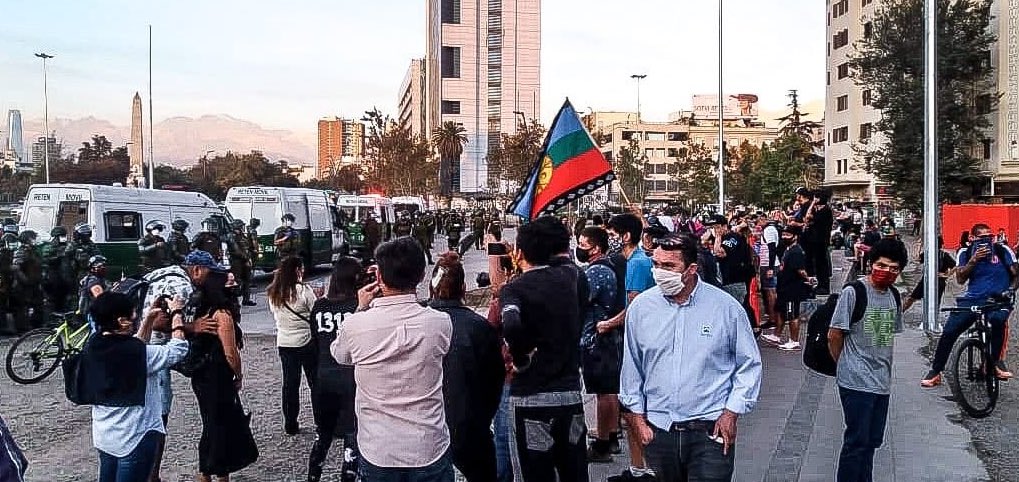
For the first time since Chile was shut down by the COVID-19 pandemic a month ago, protesters on April 21 gathered in Santiago’s Plaza Italia—which had been renamed “Plaza Dignidad” during last year’s popular uprising. Demonstrators were opposing President Sebastián Piñera’s call the previous day for the country to return to work under a “new normality,” in spite of the COVID-19 threat. The protesters wore masks, but were nonetheless quickly dispersed by the Carabineros, with 14 arrested. Gatherings of more than 50 continue to be banned nationwide.
Piñera sparked outrage on April 3, when he posed for photographs at the empty Plaza Italia amid the strict lockdown, seeming to gloat at the defeat of the national protest movement that had demanded his resignation. Piñera’s pledged referendum on a new constitution, his one concession to the protesters, was originally scheduled for this month, but has been postponed to Ocotber.
Piñera declared a “state of catastrophe” throughout the country on March 18, but is now considering issuance of “immunity passports” allowing approved employees to return to work. The plan is being protested by the country’s leading medical institutions, who call the scheme reckless and say they were not consulted. Chile has thus far registered 160 COVID-19 fatalities. (BBC News, Reuters, AP, WaPo, Europa Press, Al Jazeera, CNA, CNN Chile, El Mostrador, Santiago, Cooperativa, Santiago)
Photo via Twitter




